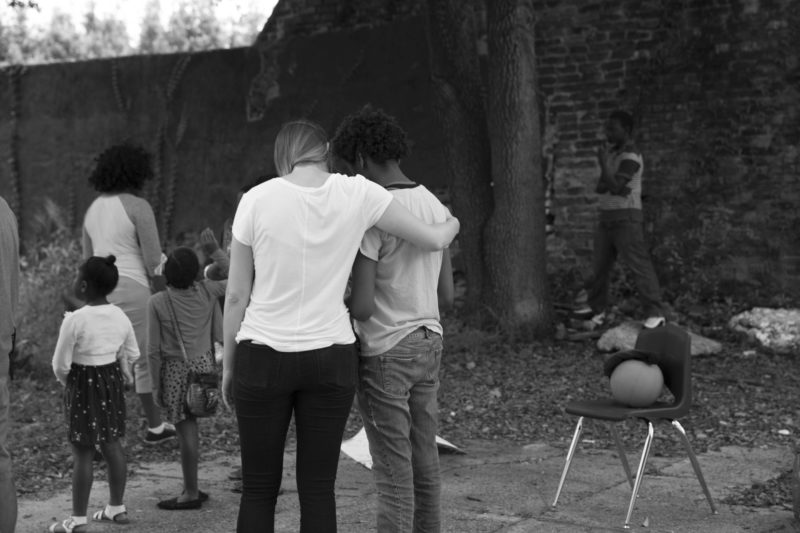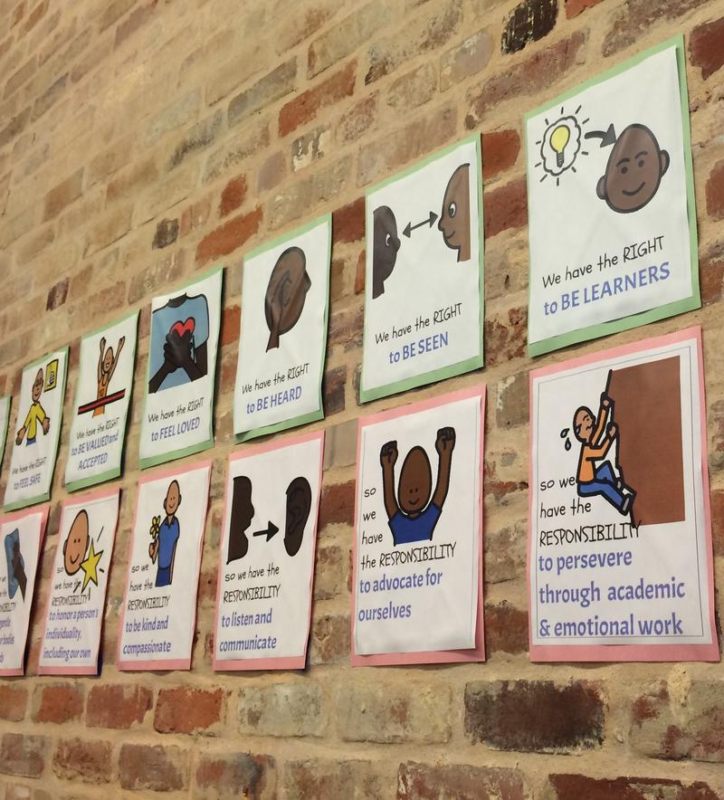
Students and staff at the Therapeutic Day Program (photos provided by: Therapeutic Day Program)
Sometimes statistics can seem meaningless. Other times, they hit you in spots that make your long-term memory stand at attention. Take, for instance, the fact that more than 68% of children and adolescents experience a potentially traumatic event by the age of 16. Now think about August 23, 2005 in New Orleans, the crime rate in the city, or the poverty level. Trauma lurks on what seems to be every corner of this vibrant and beautiful city.
Women like Elizabeth Marcel, the executive director of the New Orleans Therapeutic Day Program and Monica Stevens, the milieu director, saw the trauma that events like Hurricane Katrina or situations much closer to the place children call home had, and they did something about it. It’s called the Therapeutic Day Program, and it is now moving well into its second year.
Currently a K-8 program, the Therapeutic Day Program is housed on NOOCA’s campus and Children’s Hospital Calhoun Street, and both Marcel and Stevens have great plans for how they would like the program to grow. But, to see where one is going, it’s always great to see where they have been.
As Marcel explains, “We have now expanded to serve a total of between 30 and 36 children across two different program sites in the city…we could not be a one-size fits all model in the absence of a whole variety and menu of mental health sites and placements in the city,” she says, so they are finding various ways to diversify and help the students where they need it most.
“We have a therapeutic day school where children are with us for six-and-a-half hours of the day,” Marcel says. When the students arrive at the program, half of the time is spent in a classroom setting doing school work and the other half of the day is spent in variety of therapeutic programs, such as group therapy, individual therapy, and enrichment activities led by licensed counselors.
Low-stakes and low-demand activities as well as working one-on-one with a teacher everyday helps these students learn through play as well as build trust with those around them. “Play is how kids learn,” Stevens says, and the Therapeutic Day Program likes to promote child-led play. This is how kids start to compromise, where they can learn empathy, and where they learn adjustment that may feel foreign at first, but is also liberating because…well, it’s play. “The kids that come to us are often mistrustful of new relationships,” Stevens says, “and so when we get to a point where we see them being joyful and being kids then we know we are getting somewhere.”

Work from the Therapeutic Day Program (photos provided by: Therapeutic Day Program)
The care and support offered by the faculty and staff that make up the Therapeutic Day Program extends outside the classroom walls as well. There is a staff member dedicated to home-bound or community-based services for the kids transitioning either into the program or between programs. The program is reaching within the schools and throughout the community to ensure that students with severe mental and behavioral health needs have a hand reaching out to them.
“We would like to be the entity that provides all of the non-school based mental health services for children and adolescents in the greater New Orleans region,” Marcel says with a smile and anticipatory eyes. Now that is a site we would like to see.
To learn more about The Therapeutic Day Program, you can check out their website at www.rsdla.net.
 NOLAbeings Multimedia artist Claire Bangser created NOLAbeings as a portrait-based story project that marries...
NOLAbeings Multimedia artist Claire Bangser created NOLAbeings as a portrait-based story project that marries...  Voodoo in New Orleans: Reviving history: New Orleans fortune telling This article takes a deep dive into the history of Voodoo in New Orleans, its hybridization with Catholicism, and its present-day place in the city's culture. The author visits fortune-tellers in the French Quarter, using their guidance as a tool for introspection rather than a deterministic predictor of the future. Through her experiences in New Orleans, the author feels a mystical connection to both the past and the future.
Voodoo in New Orleans: Reviving history: New Orleans fortune telling This article takes a deep dive into the history of Voodoo in New Orleans, its hybridization with Catholicism, and its present-day place in the city's culture. The author visits fortune-tellers in the French Quarter, using their guidance as a tool for introspection rather than a deterministic predictor of the future. Through her experiences in New Orleans, the author feels a mystical connection to both the past and the future. 